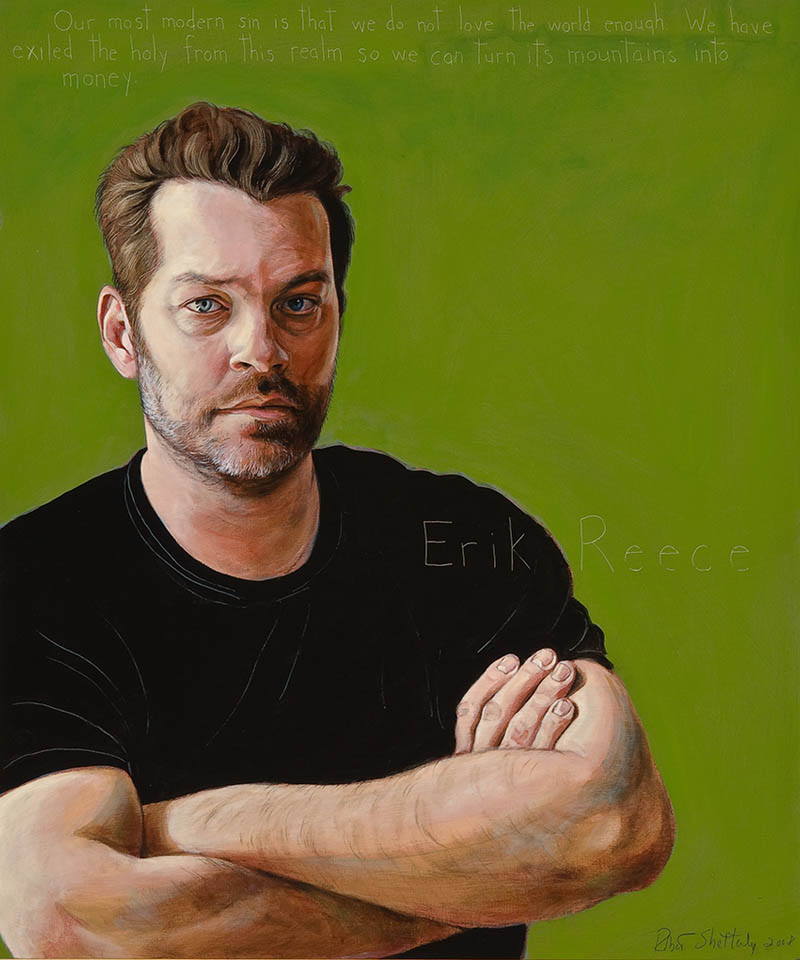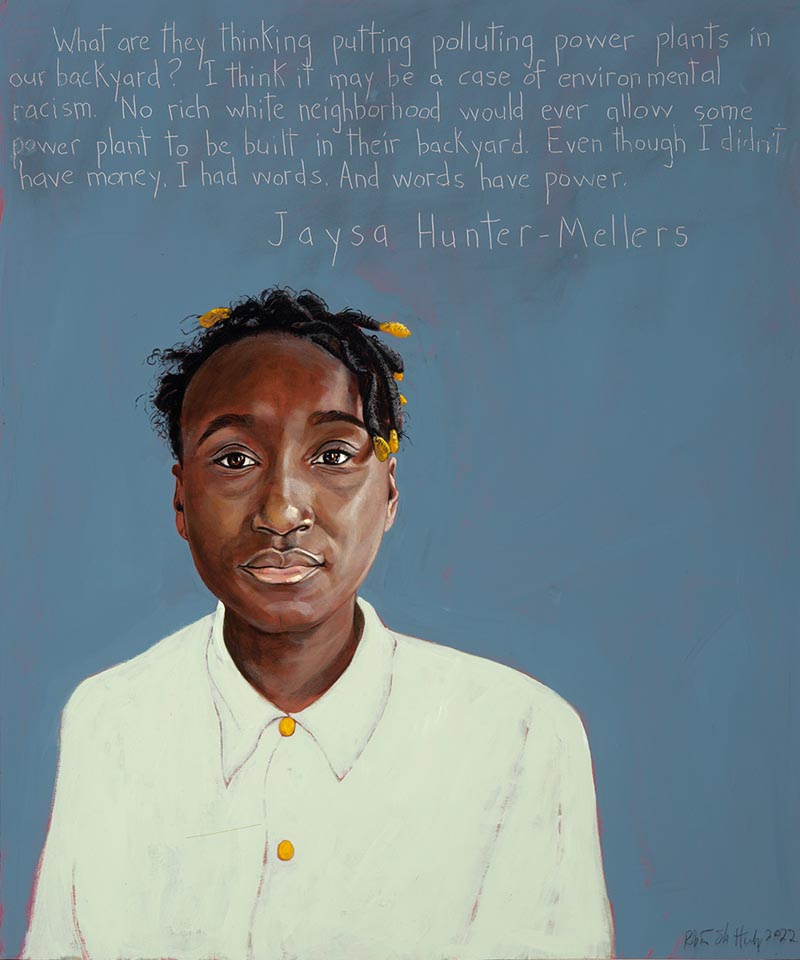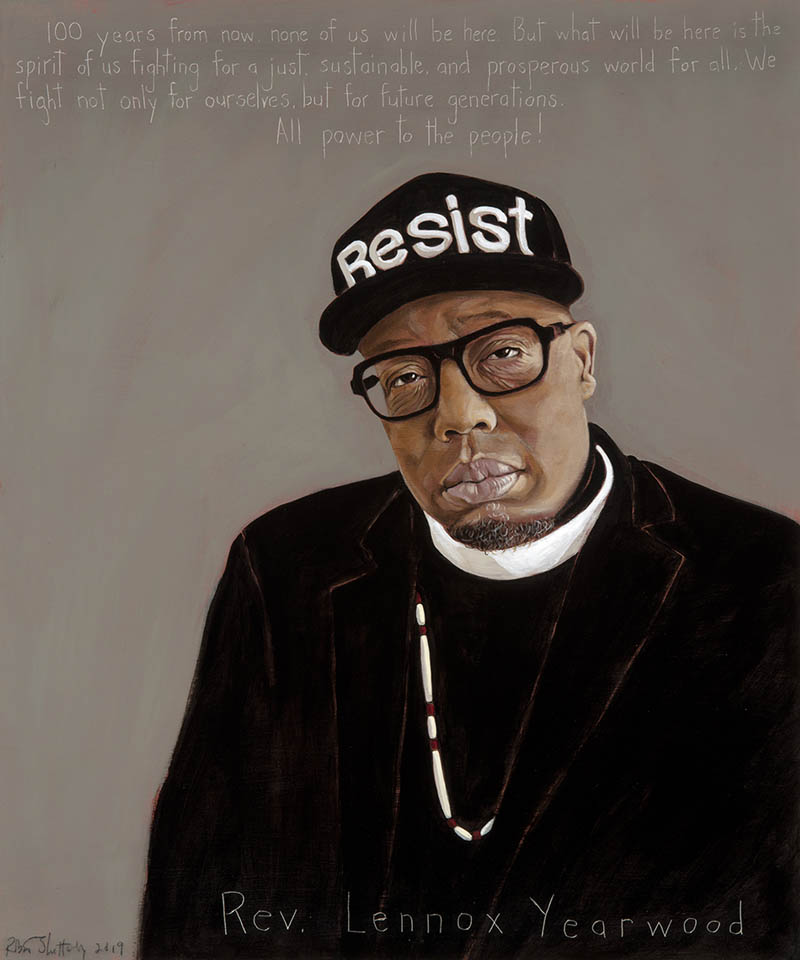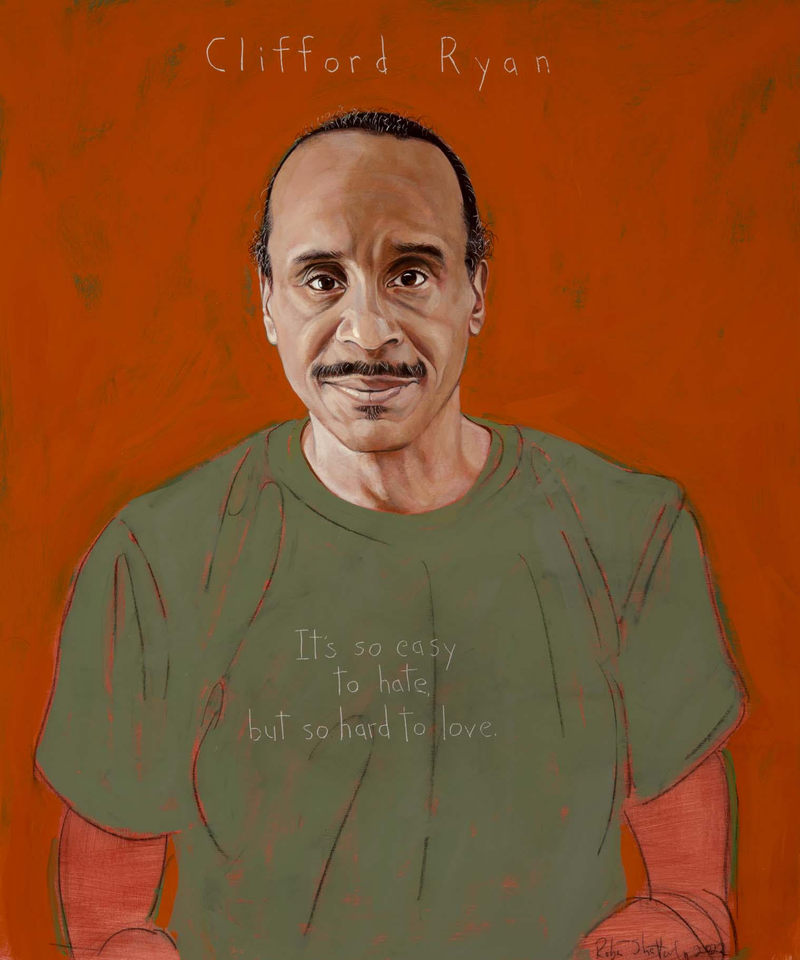What's New
Sacrifice Zones, Kids & Money
Not too many years ago, if I heard the term “sacrifice zone,” I thought it might refer to an area where rebellious people were executed, a place where a totalitarian state or group of fanatical fundamentalists lined its victims up against a wall. Or I envisioned an altar where a goat or a girl was killed to propitiate an angry or greedy god. Turns out I wasn’t so far off. If, for “totalitarian state” and “greedy god,” we substitute powerful chemical or fossil fuel corporation, the result is pretty much the same – the executions proceeding in slow motion, the victims not being defined by political or religious apostasy but by poverty and race regardless of age or sex.

Fifteen years ago, in order to paint portraits of people resisting mountaintop removal coal mining, I visited eastern Kentucky and central West Virginia. I witnessed miles of devastated landscape, eradicated forests, mountains turned to rubble, blighted ghost towns, polluted streams – what had been the most biodiverse forest and regenerative landscape in North America – blown up and bulldozed, the coal carted off, the local poverty deepened, the environment toxified. Does anyone think that if the mountains around Vail, Colorado, or Lake Tahoe, California, had coal under them, the same exploitation would have been enacted? Appalachian coal country remains a sacrifice zone for energy production and coal company profit.
Variations on this theme have played out for years all around this country and the world. In the ghettos of many large cities coal-fired power plants spew asthma and cancer-causing particulates into the air, manufacturers discharge dangerous effluents into the rivers and bays, the city incinerates its garbage. The powerful in government assume that poor people – usually people of ethnic and racial minorities – do not have the political clout to fight off having themselves made into a sacrifice zone.
Ancient religious sacrifices appealed to moody gods to end a drought, for a good harvest, victory in battle, the end of disease. The appeal in a corporate sacrifice zone is far more single minded but also to a god – to Mammon, the god of profit.
And not just around cities. Whole regions have been sacrificed. The ever expanding decimation of the Amazon and other rainforests around the world. The dead zone in the Gulf of Mexico. Cancer Alley in Louisiana. The fracking areas in Pennsylvania and Montana. The plastic gyres in the oceans. The superfund sites around many U.S. military bases and weapons testing sites. These huge areas are comparable to essential organs in our bodies. By eating too much fat and salt, we turn our hearts into sacrifice zones. By drinking too much alcohol, we do the same to our livers. By smoking too much, our lungs. The Earth, like our bodies, is fatally threatened by the sacrifice of essential areas. So, the assumption by the powerful, that a sacrifice zone can be confined to a specific region is absurd. Yes, poor and BIPOC communities may not be able to fight back; sooner or later Nature will do it for them.
Recently, though, I realized that the definition of sacrifice zones, if considered primarily in terms of environmental racism and environmental justice, is too narrow, too geographically fixed. Our children and many adults have become a sacrifice zone for the profits of the gun industry. Children and adults, too, are a sacrifice zone for human traffickers and the porn industry. And the entire world has been made into a sacrifice zone for fossil fuel profits, for industrial farming, and all the other industries that accelerate climate catastrophe. Kids are sacrificed as cynically as a mountain, a river, or forest.
It was not a surprise to me that wealthy special interests thought the only effect for them of locating polluting plants in poor areas was positive – a positive bump in their bank accounts. They thought their own health was unscathed by sacrificing the poor. But now it’s unavoidably clear that environmental injustice and racism cannot be disciplined to affect only the poor and the BIPOC. Once the rich realize their own lives and generational health and wealth are endangered, one might think the rich would desist. If compassion was not a deterrent, survival certainly ought to be! But even threats to their longevity and that of their children does not modify their addiction to profit. Perhaps it’s their sense of entitlement. Their wealth and privilege have protected them from so many of the stresses afflicting normal people. Why not from pollution and climate change, too?
One of the baffling consequences for this breed of predatory capitalists, who have enjoyed privileged educations in the most exclusive schools, is their ethical crippling, the unerring ability to make horribly stupid decisions resulting in enormous suffering. They justify creating zones of sacrifice where not only people but all the Earth’s species pay a terrible price. And eventually that price will swallow the protections bought with their own profit. Reliance on short-term profit delivers long-term catastrophe. The snake bites its own tail. Just as the life of a nine-year-old riddled with bullets from an AR-15 cannot be restored, neither can the soul of the person who insists we need these weapons to protect ourselves from the government that would regulate them.


